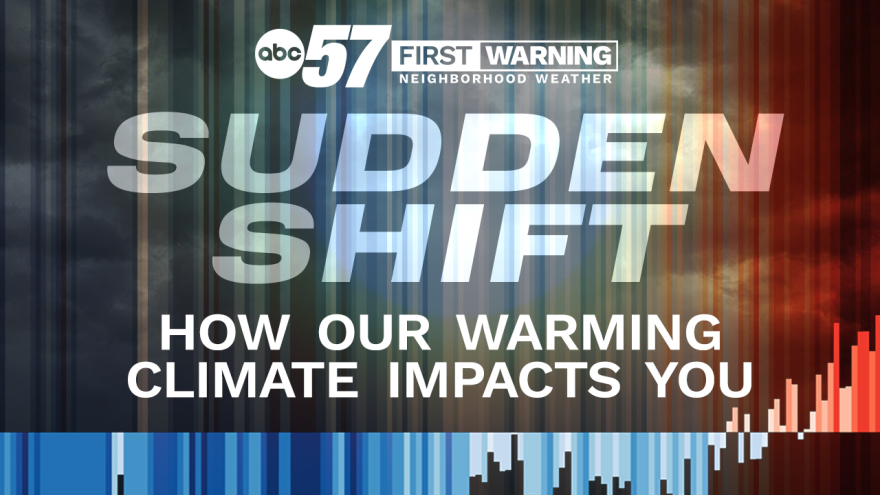Sudden Shift: Power Policy
To cut emissions in a meaningful way, renewable energy infrastructure needs to grow dramatically. But how that growth happens is a big point of debate, as solar consultant Ryan Lengacher knows all too well.
“Indiana counties are passing new zoning ordinances as fast as possible to stop large solar farms because the majority of the people who live in their county don’t want to see them,” he said.
Fields of solar panels collect direct current electricity from the sun’s rays—transitioning it to alternating current (AC) via an inverter—which then goes back into the power grid.
"In the United States we use AC electricity for almost everything,” Lengacher said.
It’s a sentiment shared by some in Marshall County, who recently debated in a county commissioner's meeting over whether large solar companies should be able to lease out farmland.
“I can appreciate property owners wanting to have solar on their land, but the issue here also has impact and consequences on those whose property borders these lands," one person argued to the commissioners.
“We have more signed signatures against industrial solar than the winning candidate of mayor for Marshall County,” said another.
Lengacher, who sells solar systems for homes, many with the ability to go off-grid, agrees with the sentiments against solar farms.
“I think the answer needs to be smaller solar, on a smaller scale, and then multiply it,” he said.
He says local government can incentivize this.
“If you look at Illinois, I believe, they’re committed to that vision of more renewable energy, but they are incentivizing the homeowners and businesses,” he said, “I think Michigan should be doing that, I think Indiana should be doing that.”
But some property owners argue—it's their right to do as they wish with the land they own—and if they want to lease land for solar arrays, so be it.
“We don’t want to turn Marshall County into the biggest homeowner's association there is by restricting what you can do and what you can’t do,” one solar advocate argued to the Marshall County commissioners.
ABC57 spoke with Bruce Huber, energy law professor at the University of Notre Dame, to get his thoughts on the debate.
"So, probably, it should be a combination of both [small-scale and large-scale solar]," Huber said. "We have a strong tradition in this country of allowing landowners to largely decide what they do with their land.”
Huber says it takes a more nuanced, large-scale approach. For the buildout of renewable energy to work, he says, there needs to be some kind of “backup” power—whether that’s hydro, nuclear, or battery.
“Bottom line, if you want to electrify cars, you want to electrify homes, you want to sort of shift away from fossil fuels, there’s a variety of ways to make electricity," Huber said. "Arriving at the best mix is going to take some experimentation and some trial-and-error.”















